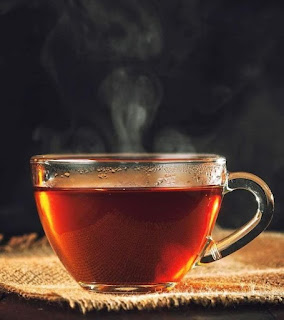Exploring healthy alternatives to tea and coffee can be a great way to diversify your beverage options and reduce your caffeine intake. For many of us, a morning cup of coffee or a soothing afternoon tea has become an integral part of our daily routine. While the allure of these beverages is undeniable, there is a world of healthy alternatives waiting to be explored. Whether you’re looking to reduce your caffeine intake, improve your overall health, or simply diversify your taste buds, there are plenty of options that offer both flavor and wellness benefits. In this article, we’ll dive into a selection of delightful and health-conscious alternatives to traditional tea and coffee.
Here are some healthy alternatives that you can try:
1. Herbal teas:
Herbal teas are made from various herbs, fruits, and spices, and they are naturally caffeine-free. They come in a wide range of flavors, such as chamomile, peppermint, hibiscus, rooibos, and ginger. Herbal teas can be soothing and have various health benefits.
2. Green tea:
If you want to reduce your caffeine intake but still enjoy some, green tea is a good option. It contains less caffeine than coffee and black tea, but it still offers health benefits due to its antioxidants.
3. Matcha:
Matcha is a powdered green tea that contains caffeine, but it also provides a more sustained release of energy compared to coffee. It's rich in antioxidants and has a unique, slightly sweet flavor.
4. Golden milk (turmeric latte):
Golden milk is a warm beverage made with turmeric, milk (or a non-dairy alternative), and spices like cinnamon and ginger. It's known for its anti-inflammatory properties and comforting taste.
5. Chai tea:
Chai tea is a spiced tea made from black tea, spices (such as cinnamon, cardamom, cloves, and ginger), and milk or a non-dairy alternative. You can opt for a caffeine-free version by using rooibos or herbal tea as the base.
6. Yerba mate:
Yerba mate is a traditional South American drink that provides a gentle caffeine boost along with a range of vitamins and minerals. It has a unique taste and is often enjoyed in a social setting with friends.
7. Fruit-infused water:
Create your own flavored water by infusing it with slices of fresh fruits, such as lemon, lime, orange, berries, or cucumber. It's a refreshing and hydrating alternative to sugary beverages.
8. Coconut water:
Coconut water is a natural and electrolyte-rich drink that can be quite hydrating. It's low in calories and provides a good source of potassium.
9. Vegetable juices:
Freshly made vegetable juices are an excellent way to increase your nutrient intake. You can create combinations using carrots, beets, spinach, kale, celery, and more.
10. Decaffeinated coffee and tea:
If you still enjoy the taste of coffee and tea but want to avoid caffeine, opt for decaffeinated versions. They provide the flavor without the stimulating effects.
While tea and coffee hold a special place in our hearts, exploring the realm of healthy alternatives can open up a world of new flavors and well-being benefits. From calming herbal infusions to invigorating matcha and nourishing golden milk, there are countless options to suit every taste and health preference. By incorporating these alternatives into your routine, you can embark on a journey of wellness that delights your palate and supports your overall vitality. So why not raise your cup to the diverse and nourishing world of caffeine-free options?
Remember that drinking plenty of water is essential for overall health. While some of these alternatives provide additional health benefits, water remains the best choice for staying hydrated throughout the day. As with any dietary change, it's a good idea to consult with a healthcare professional if you have any specific health concerns or conditions. Enjoy exploring these healthy alternatives and find what works best for you!














0 Comments